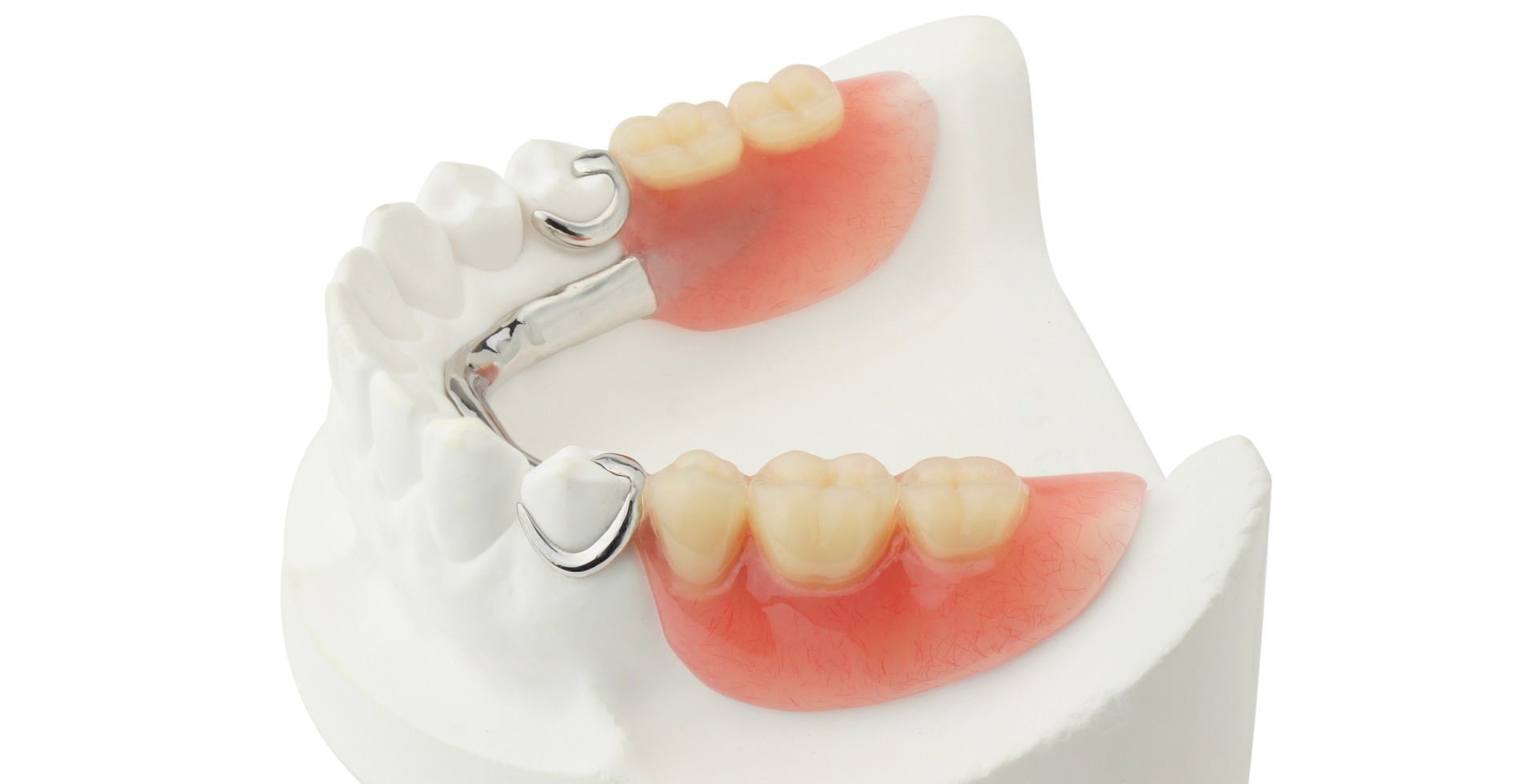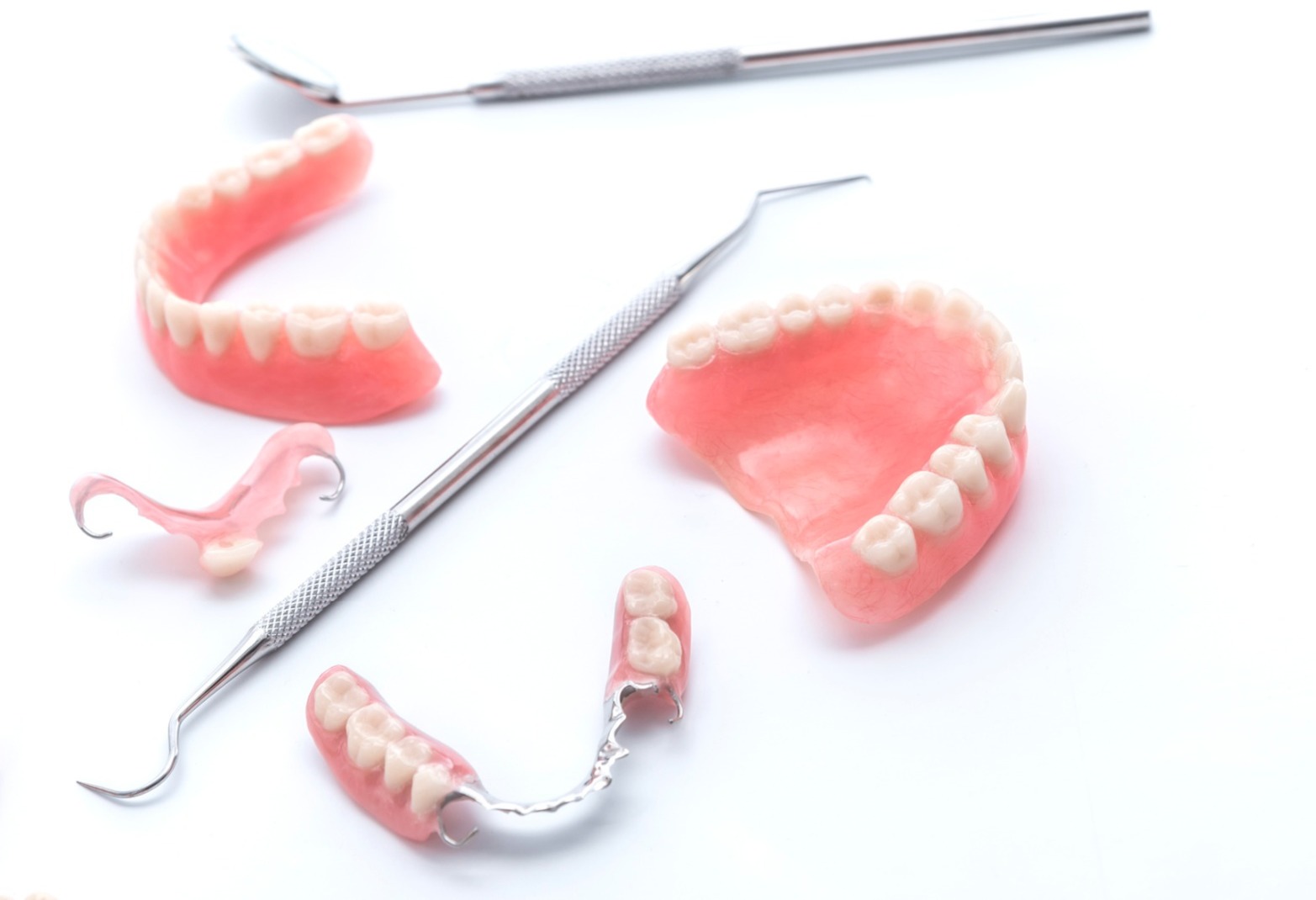Dentures
What are dentures?
A denture is a removable appliance used to replace missing teeth (often known as a “plate” or “false teeth”). They are made of acrylic or a combination of metal (cobalt/chromium) and acrylic. They will improve your appearance and will help you to eat more efficiently and can improve your speech.
Do they take a long time to make?
They take several visits. Initially we will examine your mouth and plan which type of denture will be suitable. Then there will be further visits for impressions, bite registration, try-in of the denture, fit and review. At each visit the denture is returned to the technician for the next for the next stage in the process to be fabricated.
Are dentures difficult to get used to?
You will be aware of the dentures at first. It may take several days or weeks to become accustomed to them. Gradually with time and experience you will get better at eating with the dentures.

EATING- this will take practice. To begin with eat soft foods in small pieces. Use both sides of your mouth at the same time (this will prevent the denture from rocking or tipping. Gradually you can introduce other foods until you start eating normally.
DISCOMFORT- the denture may rub in places and cause discomfort. This can be rectified by easing the denture in the relevant places. Please call the surgery as soon as you can. If they are too uncomfortable please remove them.
SPEECH- your speech may be affected initially. You may find that you lisp. Repeating certain words will help. Try repeating the following phrase “The Leith police dismisseth us” numerous times. This usually improves the situation within two weeks.
SALIVARY FLOW INCREASES- at first you may notice an increase in the amount of saliva in your mouth. This happens naturally and it will return to normal after a few weeks. Swallowing more frequently will help.

Dentures should be cleaned as often as your own teeth to prevent the accumulation of food and plaque. If the dentures are not cleaned regularly it could result in gum disease or decay in the surrounding teeth.
It is good practice to remove and clean dentures after each meal.
TIPS FOR CLEANING DENTURES:
Use a soft brush or denture brush
Do not use hot water as this can damage the plastic of the denture.
Avoid abrasive cleaners as they can roughen the surface. Do not use bleach as this will lighten the pink parts of the denture and make them look less natural.
Always clean dentures over a sink full of water. That way if you drop them they will not get damaged.
Dentures can be soaked in denture cleaner once weekly. This will remove stains. Make sure you rinse them thoroughly after this!
It is advisable to take dentures out every night (gives your mouth a rest). Store them in water to prevent them drying out. Give your mouth and gums a thorough brush.
In time you will almost forget the dentures are there.
Our genuinely friendly and skilled team puts new patients at ease. Skilled dentist and technicians. Call us on 01603 871771







